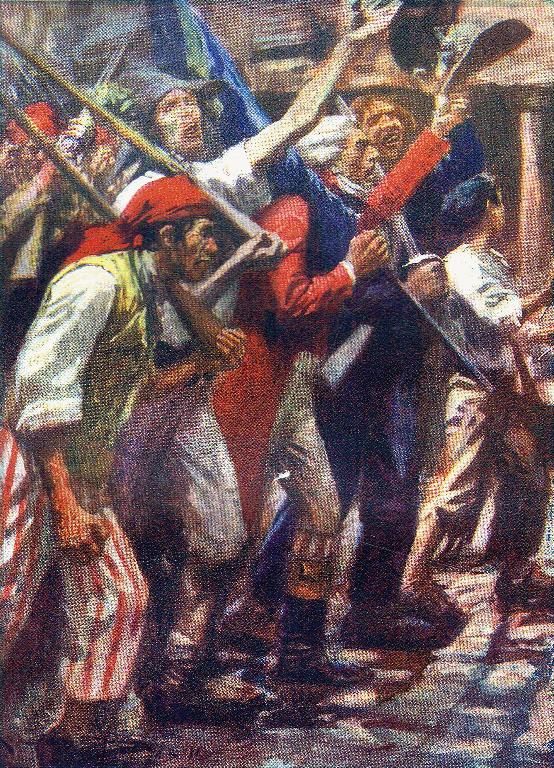Overview of Modern Europe
History of Europe and Events Leading to the First World War
The history of Modern Europe begins with the 18th century Enlightenment and focuses on conflicts between advocates of secular "reforms", and traditional Christian monarchies. The rise of Prussia, the political turmoil of France, the unification of Italy, the growth of the Russian Empire, the era of European colonialism, the Bolshevik revolution, and the rise of anti-clerical governments throughout Europe, are some of the major political themes of the period.
 |
Unfortunately, the relative peace with which Britain evolved towards a more liberal government was not easily duplicated. The forces in favor of "reform" on the continent were no longer primarily Christian in worldview. The political object of the Reformation in England was simply to oppose Roman interference in national government—not to dismantle the church, overtake its educational and charitable functions, and upend traditional Christian civilization. Not all Republicans or reformers on the continent were anti-Christian, but even those who did not want to overthrow the church altogether sought to make it subservient to the state. For this, and many other reasons, Europe's path to constitutional government was far bloodier than that of England or America, and involved a series of revolutions, massacres, anarchies, cataclysmic wars, dictatorships, and totalitarian regimes, all promulgated in the name of liberty.
Because much of the conflict in Europe during the 18th and 19th centuries was driven by political ideology, technological evolution, and humanist philosophy, it is a difficult period for young readers to understand. To make complex matters more confusing, most historical accounts produced during the late 19th and early twentieth century were blind to the dangers posed by the secular, ambitious governments and give optimistic accounts of events. In the name of reform many pillars of Christian civilization were tossed aside as impediments to "social progress". It wasn't until the modern, secularized states of Europe unleashed the full range of their destructive powers upon each other, that the world began to see the inevitable results of the loss of Christian restraints on national governments.
It is impossible for advanced students to really understand this period of history without some knowledge of 19th century philosophy, but that is beyond the scope of this library. What it can provide, however, is an excellent introduction to some of the most dramatic stories in all of world history. Among these are the French Revolution and Reign of Terror; the Napoleonic Wars; the Rise of Prussia and the formation of the German Empire; the Franco-Prussian War and the Paris Commune; the rise of the Russian Empire; Garibaldi and the Unification of Italy; and finally the Great War and Bolshevik Revolution. Behind each of these events, of course, was a complicated web of intrigue, secret societies, and anti-clerical activism whose significance was not generally understood. The disastrous wars, revolutions, and totalitarian regimes of the 20th century caught many people in the West unaware, in spite of the fact that the political, philosophical, and military groundwork for these catastrophes was laid over a long period of time.
Historical Divisions of the British Middle Ages
| French Revolution | Reign of Louis XV Death of Robespierre | 1715 1794 |
| Napoleonic Wars | French Directory Battle of Waterloo | 1795 1815 |
| Republican France | Restoration of Bourbons Great War | 1815 1914 |
| Unification of Italy | Napoleonic Wars Mussolini | 1792 1925 |
| Rise of Prussia | Frederick the Great Revolutions of 1848 | 1740 1848 |
| German Empire | Bismarck Prime Minister Balkan Wars | 1848 1912 |
| Tsarist Russia | Peter the Great Bolshevik Revolution | 1682 1917 |
| Great War | Assassination of Archduke Armistice | 1914 1918 |